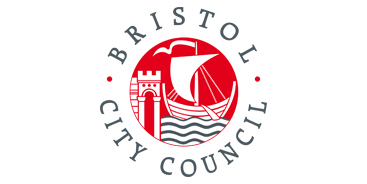Day one of IBT ended for me as many days end, with a quick skim through Twitter to catch up on some news. Having spent 14 solid hours in the company of artists and programmers talking, thinking, striving to change the world for the better, it was bracing – devastating, in fact – to discover that the Article 50 bill had sailed through the House of Commons without amendments, unruffled by opposition, and that the UK had decided that the “unspecified number” of child refugees it would home under the Dubs Amendment equated not to thousands but 350. No, my twitter feed did not express anything other than disgust at these events. By most arguments, that means I live in a bubble, or an echo chamber, depending which way the wind is blowing.
There was recognition at the Live Art Symposium that the gathered assembly, as people who have dedicated our lives to art and its transformative potential, might also be living in a bubble, or echo chamber. More than one programmer questioned their own tactics in reaching out to the communities most affected by austerity politics, whether working class, people of colour or children, acknowledging that while they felt they had always striven for inclusivity, perhaps they had been kidding themselves, and not doing nearly enough. At the same time, it was heartening to hear of the work that has been or is being done: whether in Austin, at the Fusebox festival, thinking about gentrification and displacement, working so effectively with the Latinx community and artists to rethink how a brownfield site might be developed that urban policy has shifted; in Melbourne, at the Arts House, thinking about how to prepare the local community for climate emergency; in London and across Europe by J&J (artists James Leadbitter and Jessica Huber) opening up space for people to talk about hope and fear.
But it was also galvanising to hear Low Kee Hong, head of artistic development for the West Kowloon Cultural District in Hong Kong, reject the idea that reaching out to people affected by austerity politics is something to outsource to cultural leaders when we all, as individuals, should be taking responsibility for this. He challenged everyone in the room to go to a cafe and buy a meal in credit for a homeless person. If everyone in the world’s urban centres who could afford to do so did, he argued, homeless and disadvantaged peoples sharing those centres potentially could be kept well-fed for months.
I’ll be writing more about the Symposium for Exeunt, attempting to synthesise the many strands of thought and possibility that emerged. And I’ve written my first review for Exeunt, too, of Lone Twin’s Ghost Dance. It’s possible to see that performance absolutely as a bubble: at one point, their audience consisted of me and four members of IBT’s volunteer staff. At around 11.30pm, just before it ended, the room was packed, but not with members of the general public, most of whom were settled at home. Does it matter that more people weren’t present to join in Lone Twin’s dance, to take comfort in this temporary community?
Sometimes I feel swayed by the bubble/echo chamber argument, and think that it’s important to hear the views of people who don’t think the same as me. Then I remember that mostly that argument is made to convince me that I should confront myself with the views of people who are right-wing in their politics, in ways that express as racist, misogynistic or homophobic. And that I do, constantly, seek to break my own bubble, by paying attention to people of colour who talk and write about their experiences, people who live with disability or mental illness, people who work in refugee aid, people who are refugees. Recently, a friend told me that he had stopped reading the Guardian because he felt it was too fragmentary in its approach, eschewing overview in favour of “takes” from this and that identity perspective. But isn’t that overview narrative implicitly white, male, middle-class? Last night, I got my news curated by a panoply of voices, of different backgrounds and experiences: that’s not a bubble, it’s the world. A world that everyone at IBT is working hard to listen to, understand, and make better, in however apparently small a way.
Morning Assemblies © Manuel Vason





